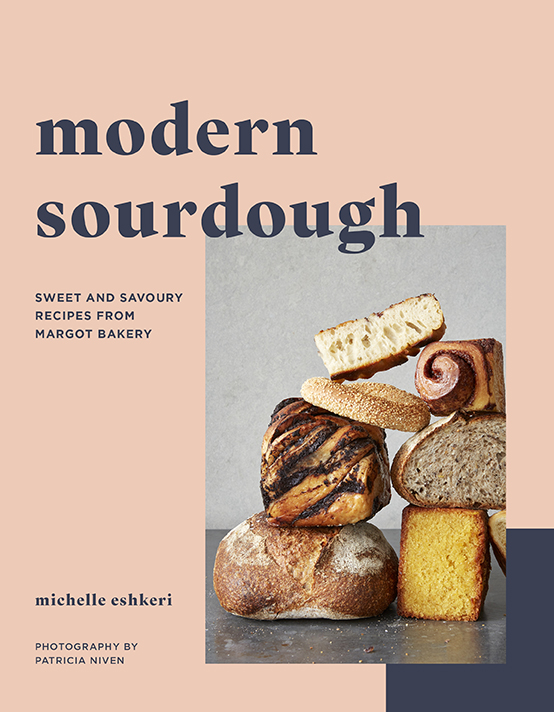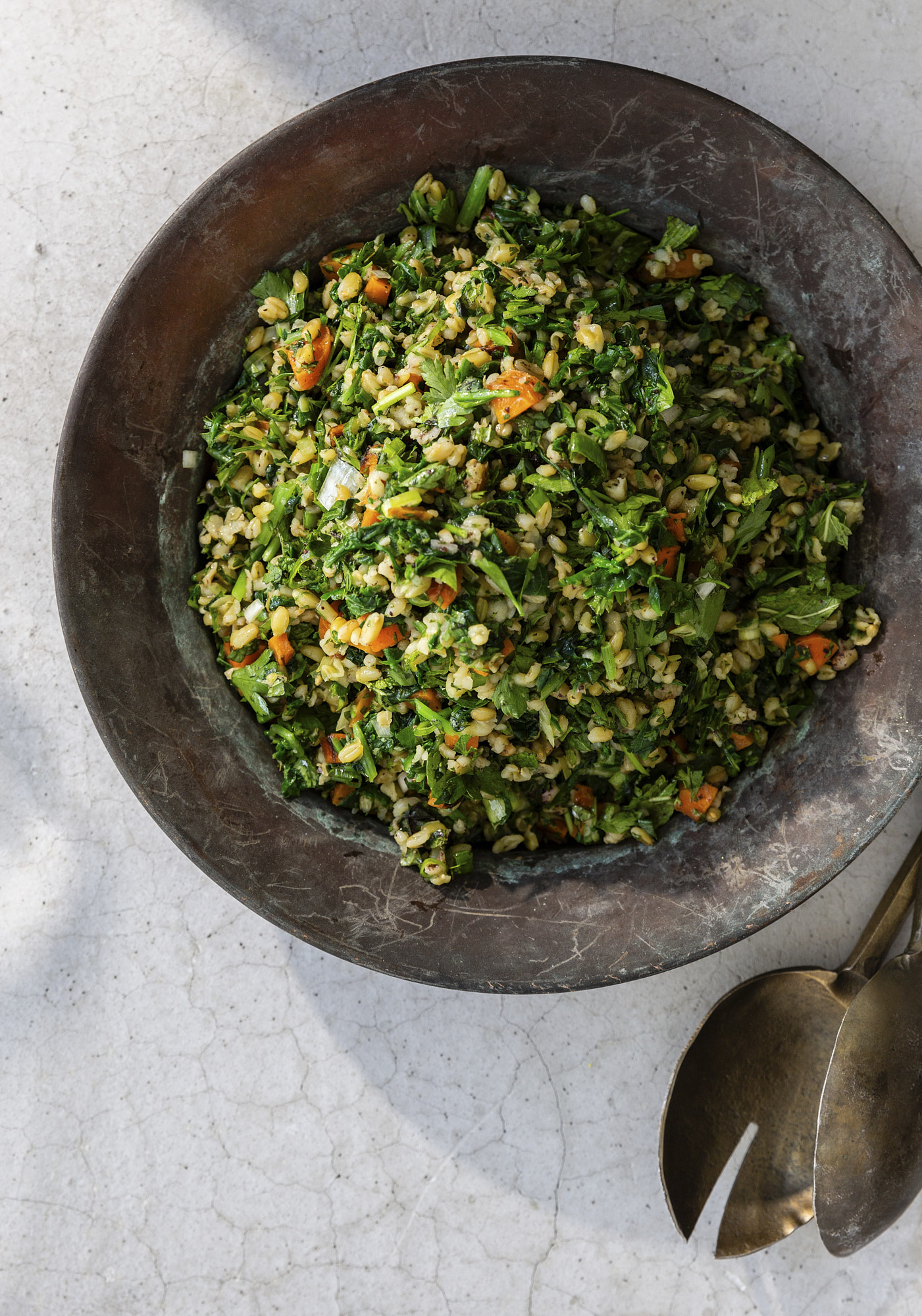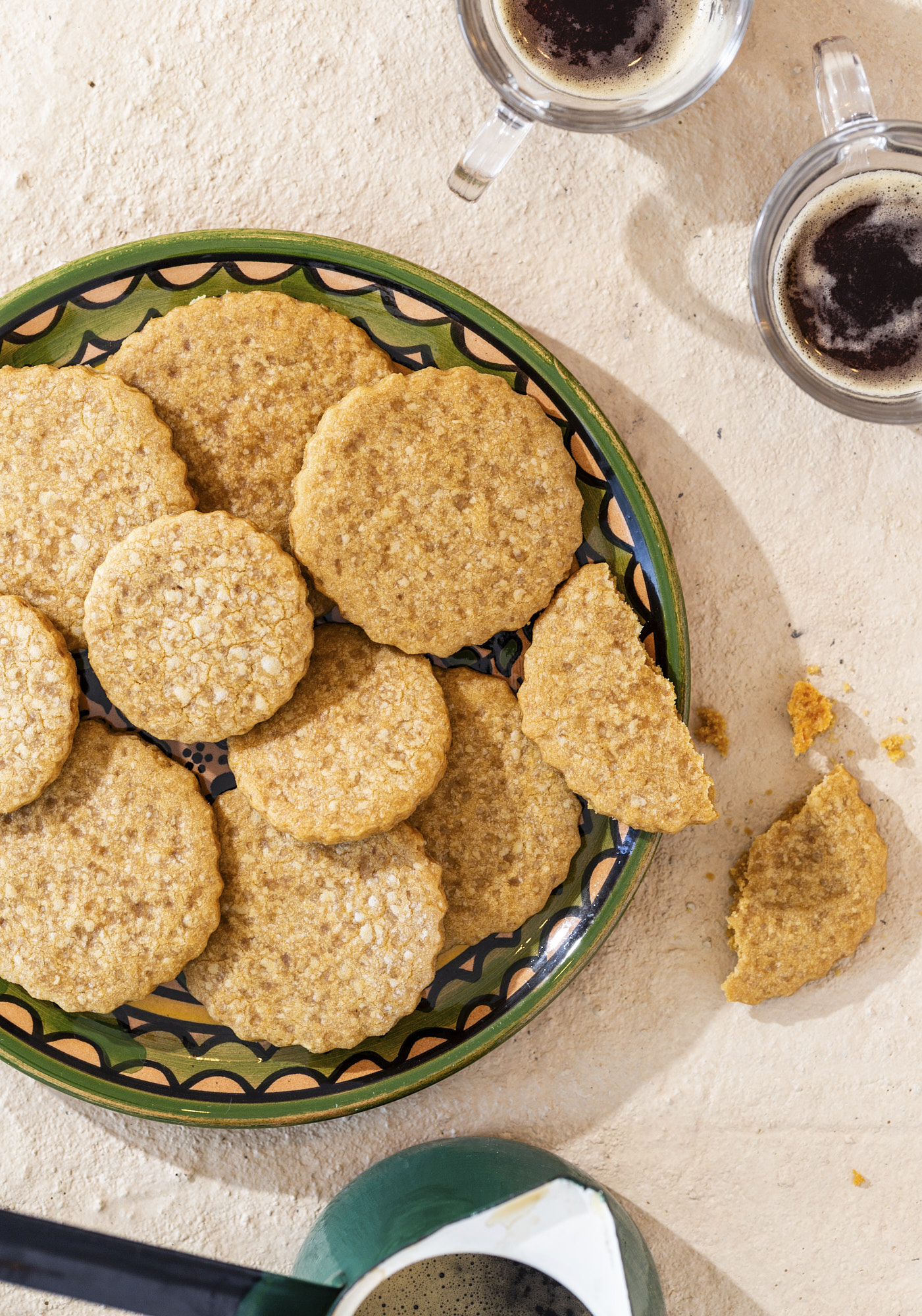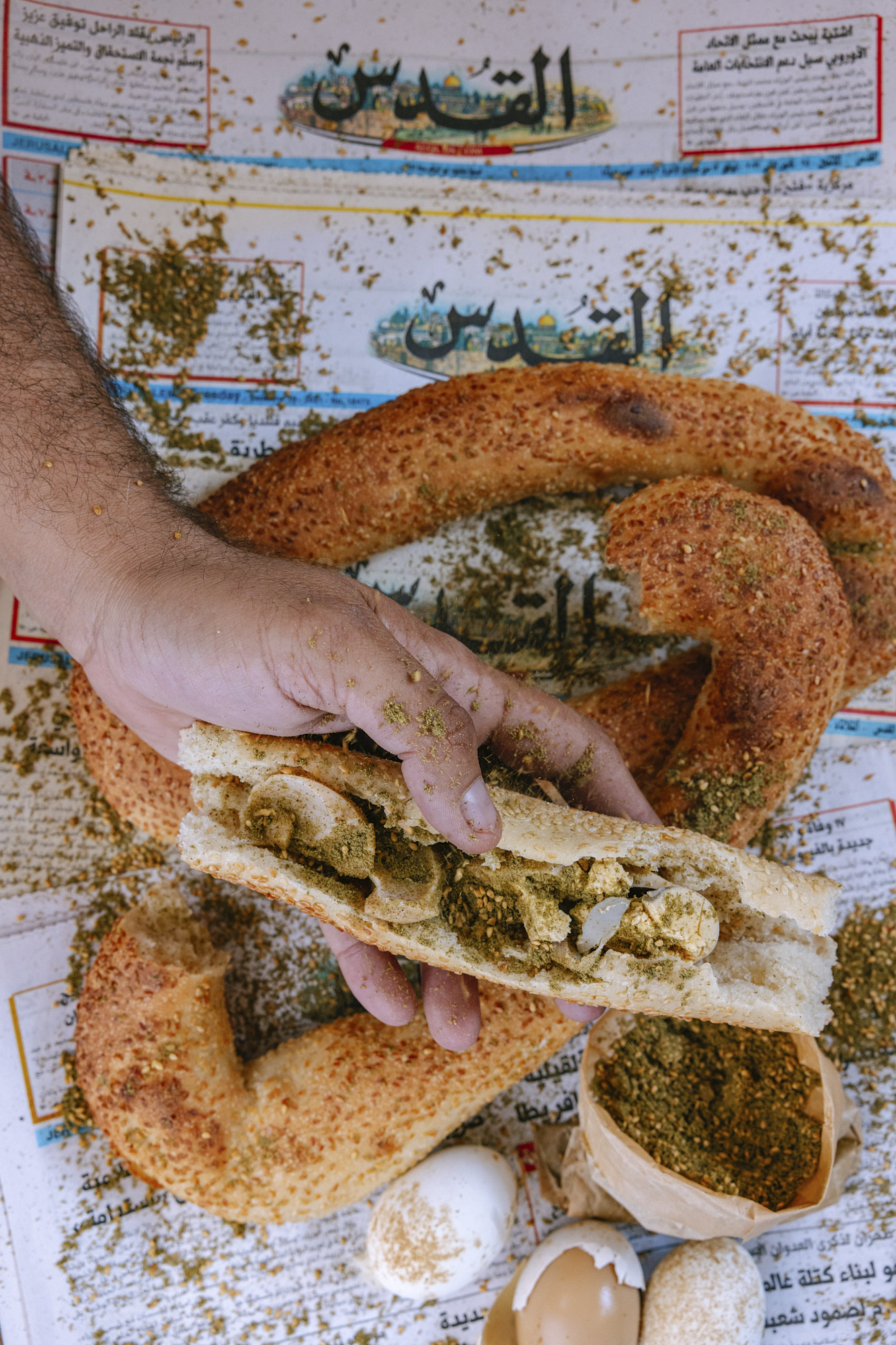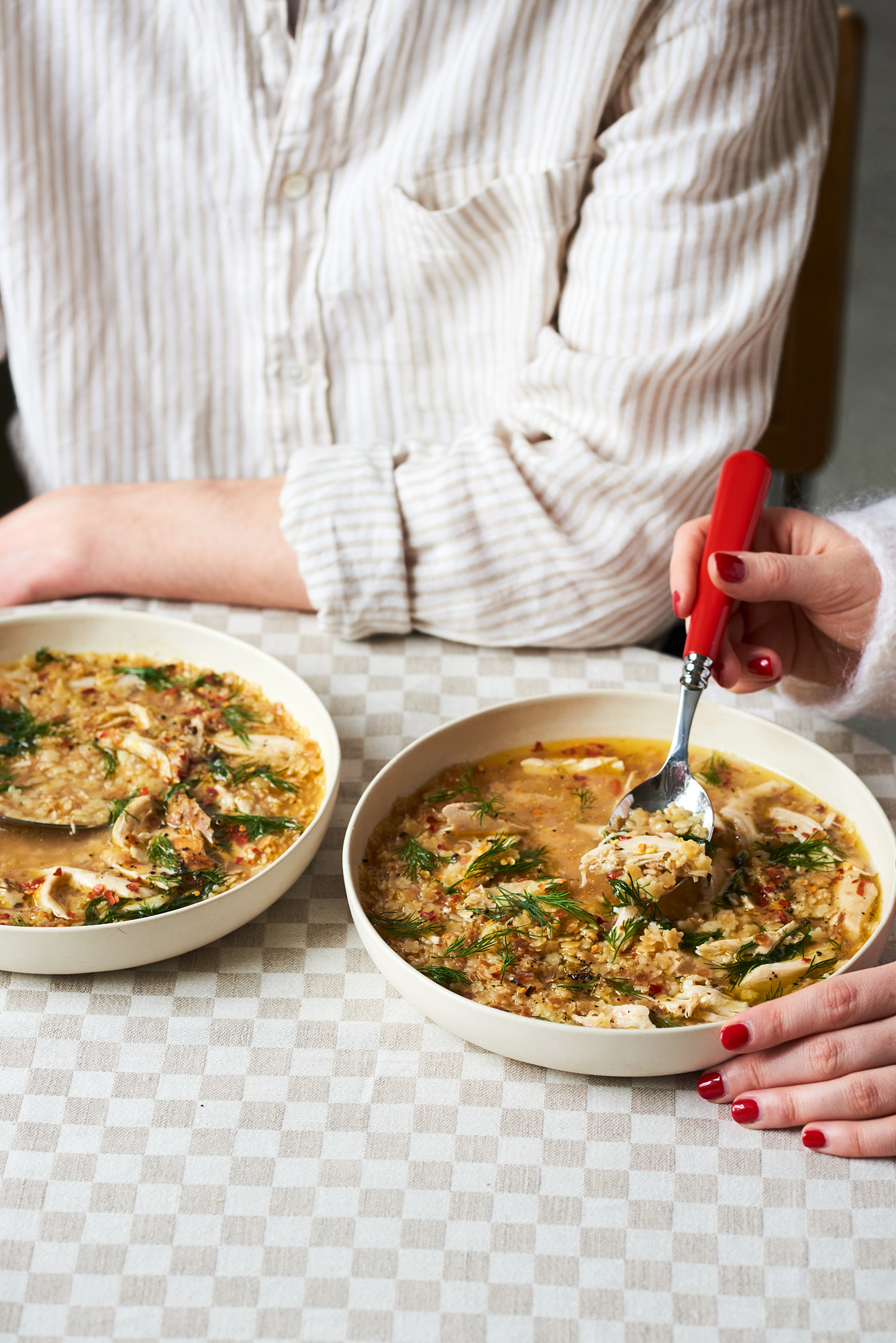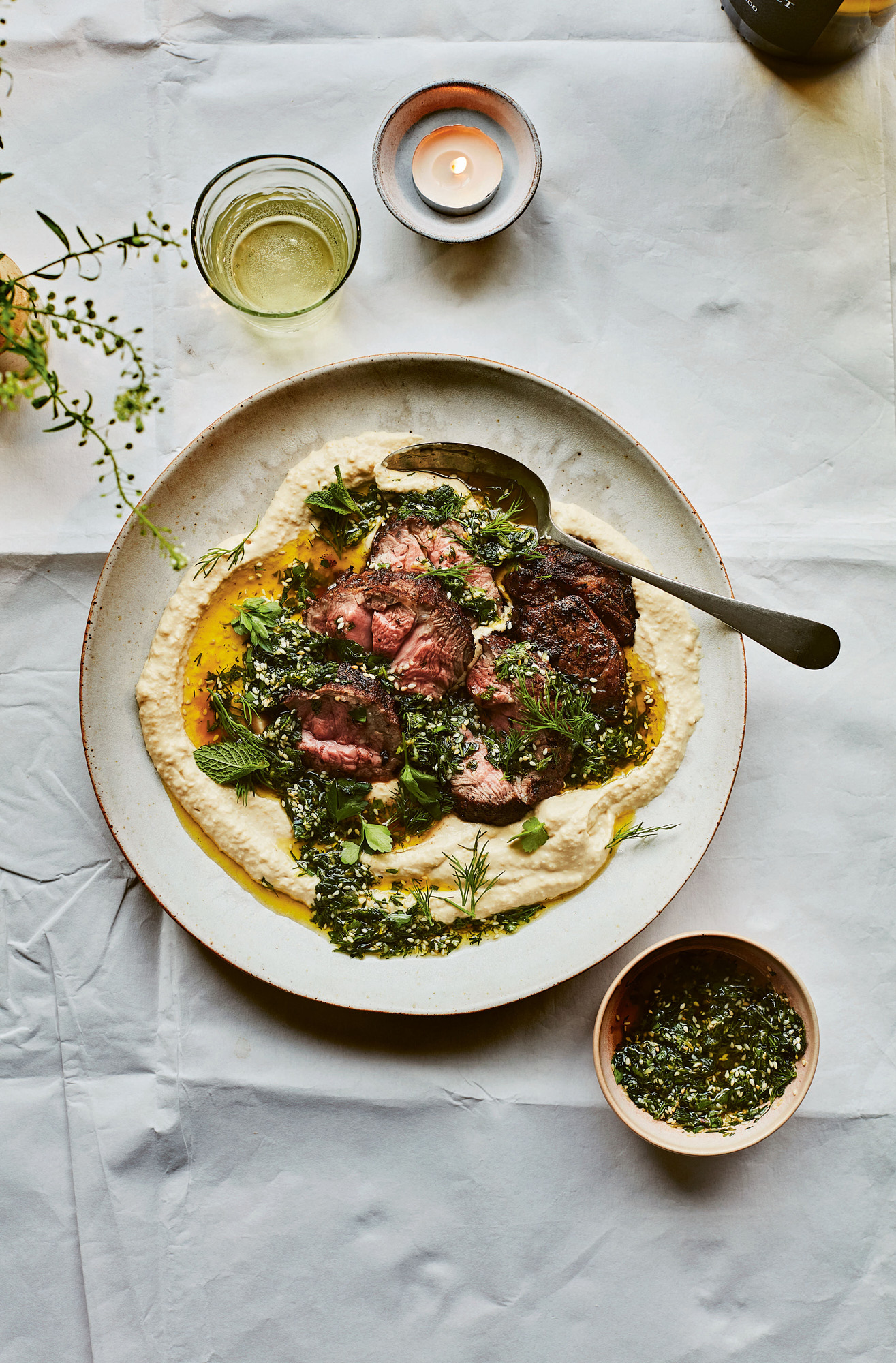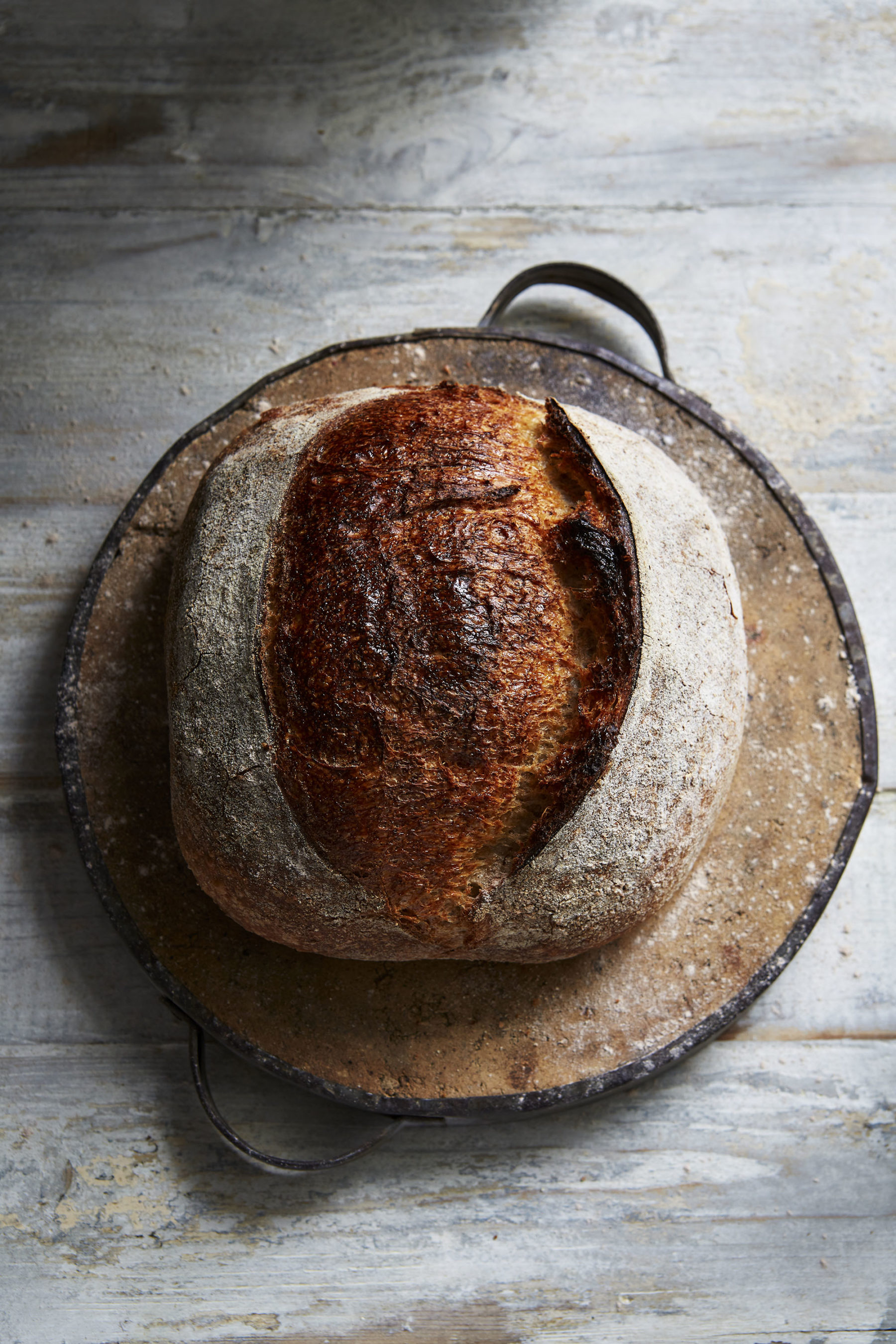

When I opened the bakery we tested several loaves in this style; fairly simple with a whole wheat starter, some rye flour for structure and flavour, and enough water to make a daily loaf that could sit in a kitchen for a day or two or three; suitable for toast, to make a sandwich for lunch or to serve with salad or soup for dinner. It’s the most popular loaf at the bakery, our customers ask for it by name and it has become the yardstick by which we measure how good all the products are. If the Margot is happy we are all happy! Feel free to reduce the water content a little while you get used to handling and shaping the dough and work your way up – 20g ( ¾ oz) less water will give a firmer, more manageable dough while you master the techniques.
Photography: Patricia Niven
Makes: 1 loaf
Ingredients
Stage 1: Refreshment
70g whole wheat flour
42g water
5g whole wheat starter (8–12 hours after last refreshment)
Stage 2: Dough mix
350g strong white flour
40g wholegrain rye flour
335g water
8g sea salt
rice flour, for dusting
sunflower oil, for greasing
Method
-
Place all the stage 1 ingredients in a 500ml Kilner jar or container with a lid, mix, cover and leave at room temperature for 12–16 hours.
-
Combine the flours and water for stage 2 in a large bowl and mix with a spoon or your hand until no dry patches of flour remain visible. Or, in a free standing mixer fitted with a dough hook, mix for 3 minutes on a low speed and 2 minutes on a medium speed. Scrape down the sides, cover and leave for 30–60 minutes.
-
Add 100g of the starter to the bowl and squeeze it through the mixture with your hand – use one hand rather than two; at this stage the dough is sticky and you are better off keeping one hand free of dough to hold the bowl. Add the salt and squeeze it through the dough.
-
Develop the dough in the bowl by hand mixing for 5–10 minutes. Alternatively you can use a free standing mixer fitted with a dough hook for 2 minutes on a low speed and 3–5 minutes on a medium speed.
-
Use the sunflower oil to grease a large mixing bowl or a rectangular flat bottomed glass or plastic container with a lid and capacity of at least 2 litres. Transfer the dough to the bowl or container, cover and rest for 20 minutes.
-
Fold the dough four times, leaving 20 minutes between each fold, then give the dough an additional hour to rest.
-
Pre-shape the dough, then shape the dough into a batard loaf. Read how to do this here.
-
Transfer the dough into a banetton and then leave in the fridge for 16–24 hours.
-
Preheat the oven to 240°C/475°F/gas mark 8 for 40 minutes, placing a cast iron pot inside after 20 minutes. Once it is hot, lower the bread into the pot and place the lid on top and return to the oven. Reduce the temperature to 220ºC/425ºF/ gas mark 7 and bake for 15 minutes, then reduce the oven temperature again to 200ºC/400ºF/gas mark 6 and bake for a further 15 minutes. Remove the lid and bake for a final 10–15 minutes until it has reached the desired colour.
-
Allow to cool for at least an hour before slicing. Store wrapped in cloth or paper to retain the crispy crust. Never store in the fridge or it will stale quickly and only wrap in plastic to preserve freshness for longer, though this will be at the expense of the crispy crust.
Read more: Modern Sourdough
Michelle Eshkeri’s cookbook Modern Sourdough explores so many innovative ways of incorporating sourdough into both sweet and savoury bakes, featuring recipes from her home kitchen and her much-loved North London-based Margot Bakery. £22, White Lion Publishing. Photography Patricia Niven.
